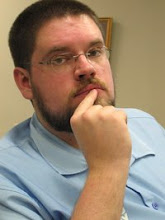1. Epistemology
a. Epistemology is our theorizing about our ways of gaining knowledge
i. Episteme = theoretical knowledge
ii. Gnosis = experiential knowledge
iii. Oida = knowledge from books
(1) Different theories about ways of knowing
(a) Critical for science
(b) Critical for therapy
(c) Yet another meta-theory
b. Valuable for your first paper (potentially)
i. How do people know what they know?
ii. How does such knowledge come about?
iii. Why do some people know some things, while other people know other things?
iv. Can problems occur in the process of knowing/learning?
v. Can we know anything learned without our physical senses?
2. Lockean Epistemology (Empiricism)
a. Empiricism: From “experience” in Latin
i. Common, unquestioned
(1) Born “tabula rasa”
(a) We derive knowledge from two things:
(i) Sensation (from our seven senses)
1) Sensation is the outside world effecting our senses
(ii) Reflection (remembering that which we have sensed)
1) Reflection is developed through our experience with the outside world helping us categorize our behavior
(b) Ultimately, external forces impinge upon our senses causing sensation directly, which is then remembered
(i) What we know is at the mercy of what we sense
(ii) Our knowledge is strictly A Posteriori
ii. If my assumptions about human knowledge were predominantly empirical as a therapist, how would that affect my treatment of my clients?
(1) What sorts of interventions would I provide?
(2) What sorts of interventions would I not provide?
3. Kantian Epistemology (Rationalism)
a. Rationalism: From ratio “reason” in Latin
b. Less common, often unconsidered
i. Descartes: The use of skepticism
(1) Doubting (even doubt) = reason
c. Socratic dialogue
d. Einstein’s gedanken
i. Recognized as a scientist, but breakthroughs were non-empirical
e. Mathematics
i. No empirical referent
f. Immanuel Kant: A priori knowledge & categories of understanding
i. A priori means “before experience”
g. Division between noumenal and phenomenal realms
i. Noumenal = world as it is apart from our understanding of it
ii. Phenomenal = world as we actually experience it
h. Categories of understanding exist a priori
i. Rose colored glasses: phenomenal structuring noumenal
(1) Time, space, shape, size
(2) Ultimately, knowledge is caused by our structuring of the world
(a) We are disturbed not by events, but by the views which we take of them
(i) Epictetus
i. If I were a therapist who assumed that what people know is predominantly how they habitually construct their external and internal world, what sorts of interventions would I provide?
i. Which interventions would I not use?
4. Exercise! (But without the sweating and panting)
a. You’re seeing a client, and you assume that the client’s disorder comes from past experience. (They had a pathogenic environment)
i. What epistemology are you assuming?
b. You’re seeing a client, and you assume that the client’s disorder comes from their unconscious mind interfering pathologically with their world
i. What epistemology are you assuming?
5. Don’t we just need ONE epistemology for crying out loud?
a. Empiricism limited in its explanatory power
i. Things can be meaningful without empirical referent
(1) Mathematics, statistics, religion, virtue, duty
b. Rationalism is limited in its explanatory power
i. We cannot change our categories of understanding
(1) True creativity limited
(2) Explaining fundamental differences in understanding is problematic
c. Search continues for the “best” epistemology
6. Alternative 1: Social Constructionism
a. The process of understanding is no longer within a given individual
i. Understanding occurs within relationships
b. Humans are fundamentally language using creatures
c. What is known is constructed through language and interaction
d. Problem: Everything known is socially constructed
i. Truth, lies, right, wrong, etc. all constructed
(1) (we’ll talk about degrees of relativism next week)
7. Alternative 2: Modes of Engagement (Hermeneutic Interpretivism)
a. Fundamental assumption: We are engaged or embedded in our world to varying degrees
i. Empiricism and rationalism posit separation between self and world = subject/object distinction
ii. Constructivism makes crucial concepts items for ironic play in discourse (relativizes fundamental realities of being)
b. Hermeneutics (interpretive) partially dissolves subject/object distinction, furthers understanding
i. Present-at-hand (Present-ness) = Detached, reflective mode of experimentation and math. Subject & object separate, leads to skewed (constructed) understanding
ii. Ready-to-hand (Occurrent-ness) = Active engagement, practical knowledge and learning less skewed by culture
(1) All of this knowledge is contextualized knowledge
iii. Treating a map as a real city = treating experimental results as immediately applicable in lived existence
(1) Studying “objectively” is to study an abstraction
(2) Subjectivity/objectivity fused into “the lived world”
iv. No unbiased interpretation, “interpretations are always and already interpretations of something”
(1) We understand the world both according to what it is, and what we make of it
(a) Yup. Both, at the same time
(2) We are “thrown” into a world of language, meaning, history, morality
(a) Our thrown-ness informs our interpretation of the world
(b) As does our engagement with the world
(i) Do we have time to talk about the hermeneutic circle?
c. Exercise time!
i. Often, wrapping our heads around constructivism and interpretivism can be challenging, but we’re up for it!
(1) If I’m a therapist who assumes that all knowledge is socially constructed in relation to others, what sorts of interventions would I use with my clients?
(a) Which would I not use?
(2) If I’m a therapist who assumes that all knowledge is interpreted knowledge of ourselves and our world around us grounded in our own context, what sorts of interventions would I use with my clients?
(a) Which would I not use?
Subscribe to:
Post Comments (Atom)

No comments:
Post a Comment